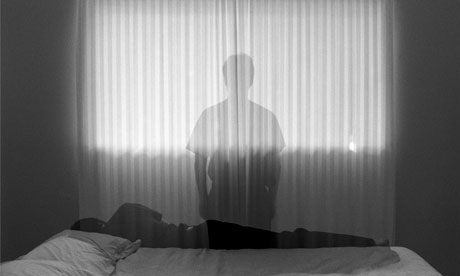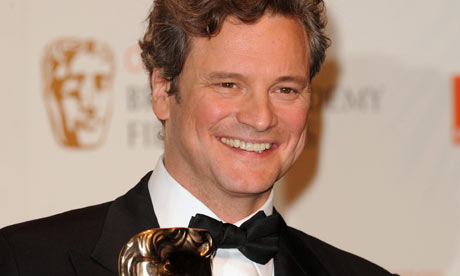It was never the most obvious subject for a thrilling, gets-you-there drama – a reluctant king's treatment for his wretched speech impediment – but the story worked to spectacular effect with The King's Speech last night, triumphing at the
Baftas.
To read more, click here:
The King's Speech
The King's Speech was nominated in 14 categories and won in seven, including best film and best British film. Not quite a record – Butch Cassidy and the Sundance Kid has nine, The Killing Fields eight – but equal to Slumdog Millionaire's seven.
But it is the subject matter – "two men in a room," said the winning writer David Seidler last night – that makes its global success remarkable. The dialogue-heavy film tells the story of stuttering George VI, who became king reluctantly because his brother abdicated.
It is also something of a sour-tasting pleasure for the scrapped UK Film Council which helped get the film made in the first place, giving it a returnable £1m. Tanya Seghatchian, head of the council's film fund, said its success "represents a great validation for the UK film industry as a whole and an amazing legacy for the UK Film Council". The producers used the ceremony to highlight the importance of public subsidy for film.
Probably the least surprising winner of the night was
Colin Firth, who was named best leading actor: his second consecutive Bafta. Last year it was for his role as a bereaved gay lecturer in A Single Man.
His co-stars were also victorious.
Helena Bonham Carter won best supporting actress from a strong shortlist including Amy Adams, Barbara Hershey, Lesley Manville and Miranda Richardson.
In one of the longer thank you speeches, Bonham Carter, who played the future Queen Mother and has also recently portrayed the Red Queen in Alice in Wonderland, thanked the royal family. She said: "I seem to be playing queens with ever decreasing head sizes," adding: "I'm so used to losing, this feels very nice." She dedicated her Bafta to supporting wives everywhere.
Geoffrey Rush completed The King's Speech's acting honours as best supporting actor for his portrayal of the Australian speech therapist Lionel Logue. He won against Christian Bale, Andrew Garfield, Mark Ruffalo and the late Pete Postlethwaite.
From humble beginnings and a budget of around £10m, the film has earned eye-spinning amounts at the box office, expected to reach £125m by the time of the Oscars, later this month.
The film's writer, London-born David Seidler, won for best original screenplay. He had wanted to write it 25 years ago, but the Queen Mother asked him "not in my lifetime". He wasn't quite expecting her to live to 101.
To read more, click here:
The King's Speech






